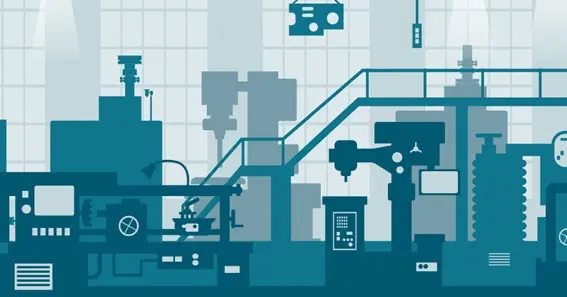The business water rates and usage is a key factor to consider when running any business. The amount of water used by businesses can add up quickly, resulting in high costs that could have been avoided with more efficient water management strategies. To help manage this expense, there are some simple steps that can be taken to reduce your business’s water consumption and ultimately save money.
Here’s a look at some practical ways to optimize and reduce water usage while lowering your business’s overhead:
Analyze Water Usage With Metering
By analyzing water usage with metering, businesses can identify areas where water is being wasted or used inefficiently, allowing for targeted improvements and more accurate billing. Metering also provides insight into which areas of the business are using the most water, enabling businesses to make informed decisions about where to prioritize conservation efforts. With the ability to track usage data over time, businesses can monitor the effectiveness of their conservation efforts and make adjustments as needed.
Also Read N: Conceptual Framework Guide: Meaning, Structure, and Examples
Implement Water-Efficient Technologies and Products
Implementing water-efficient technologies and products is a significant step in optimizing water usage and reducing expenses in business. This involves identifying and installing products that help reduce water consumption in the facility, such as low-flow toilets, urinals, and showerheads. Additionally, implementing smart irrigation technologies, such as rain sensors and weather-based controllers, can help reduce outdoor water usage.
Water-efficient products, such as dishwashers and washing machines, also offer significant savings in water consumption. Investing in these technologies and products not only minimizes water bills but also helps conserve this precious resource, which is especially important in areas where water scarcity is a concern.
Also Read P: Navigating Retirement Savings: Exploring the Benefits of IRAs
Educate Employees on Responsible Usage
Many employees may not be aware of the true cost of water and may take it for granted, leading to wasteful usage. By educating employees on the importance of responsible water usage and providing them with practical tips on how to conserve water, you can significantly reduce your water bills. This can include training employees on how to properly use equipment that consumes water, such as washing machines and dishwashers, as well as encouraging them to report leaks or other issues promptly.
You can also consider implementing incentives for employees who come up with creative ways to conserve water in the workplace, such as using recycled water for cleaning or reducing the frequency of watering plants in the office. Ultimately, educating employees on responsible water usage can help to create a culture of sustainability in your business and contribute to a healthier bottom line.
Optimize Maintenance and Repairs
Regular maintenance and timely repairs can help identify and fix any leaks or water wastage issues that may be driving up costs. It is important to conduct routine checks on water fixtures such as taps, toilets, and pipes to ensure they are functioning efficiently. Additionally, investing in high-quality fixtures and equipment can reduce the likelihood of leaks and breakdowns, ultimately reducing the need for costly repairs.
Business owners should also consider implementing a system to track water usage and identify any patterns or abnormalities that may indicate a leak or inefficiency. By addressing maintenance and repair needs promptly and proactively, businesses can optimize water usage and reduce overall expenses.
Consider Water Reuse and Recycling
By implementing a water reuse and recycling program, businesses can reduce their reliance on freshwater sources, conserve water, and reduce their wastewater discharge. There are various ways businesses can reuse and recycle water, such as using treated wastewater for irrigation or cooling processes, collecting and treating rainwater for non-potable uses, and implementing closed-loop systems that recycle water for multiple uses.
While implementing a water reuse and recycling program may require an initial investment, it can ultimately lead to significant cost savings and help businesses become more sustainable. Therefore, businesses should consider incorporating water reuse and recycling strategies into their water management plans to optimize their water usage and reduce their environmental impact.
Monitor and Track Expenses Regularly
Monitoring and tracking expenses regularly is an essential aspect of optimizing water usage and minimizing expenses in your business. By keeping an accurate record of your water consumption and expenses, you can identify areas where you can reduce usage and save money. This can be achieved by using a Water Management System (WMS) that will allow you to monitor and track your water consumption in real time. With this system, you can set goals for water reduction and track your progress toward meeting those goals.
By analyzing your water usage trends and identifying areas where you can improve efficiency, you can make informed decisions about how to reduce costs and optimize your water usage. Regular monitoring and tracking of expenses will enable you to stay on top of your water consumption and make informed decisions to reduce your business’s environmental footprint while saving money in the process.
Evaluate Water Supplier Contracts
Water bills can be a significant expense, and it is essential to ensure that your business is getting the best deal possible. Reviewing supplier contracts allows you to identify any discrepancies or inefficiencies that may be driving up costs. Take the time to evaluate your current supplier’s pricing structure, service level agreements, and billing practices. Additionally, consider negotiating new contracts or switching suppliers if you find better deals elsewhere. By analyzing water supplier contracts, businesses can identify cost-saving opportunities, improve water usage efficiency, and ultimately, reduce their overall expenses.
Seek Professional Water Management Advice
When it comes to optimizing your business’s water usage and minimizing expenses, seeking professional water management advice is a crucial step. Professional water management consultants can provide a comprehensive assessment of your business’s water consumption and identify areas where improvements can be made. They can also provide recommendations on the most effective water-saving technologies and practices that are tailored to your specific business needs.
By implementing their expert advice, you can not only reduce your water usage and costs but also increase the efficiency of your operations and enhance your sustainability efforts. Investing in professional water management advice is a smart business decision that can yield significant benefits in the long run.
Conclusion
Water is a vital resource for any business, but it can also be a significant expense. By optimizing water usage and minimizing wastage, businesses can reduce their water bills, increase their operational efficiency, and become more environmentally sustainable. The real cost of business water is not just the price of the water itself, but also the cost of the energy needed to pump, treat, and distribute it, as well as the potential cost of regulatory compliance and reputational damage. By implementing water-saving strategies and investing in water-efficient technologies, businesses can not only reduce their water costs but also contribute to a more sustainable future.






